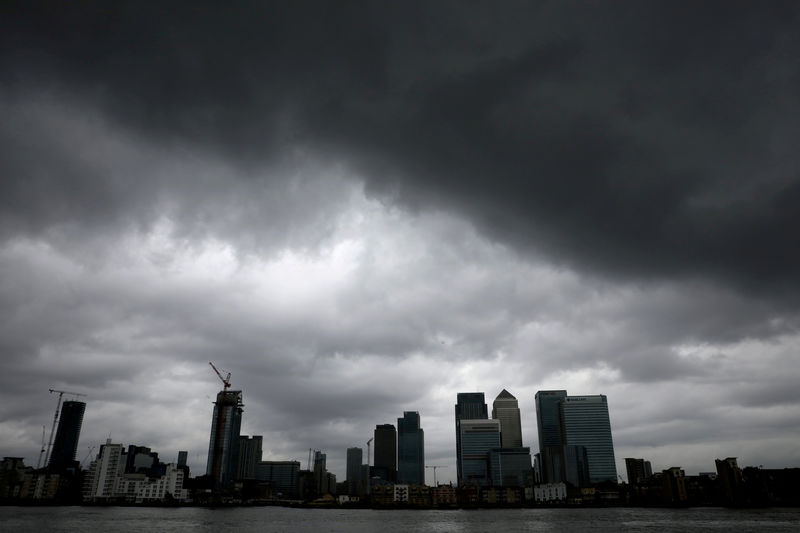By William Schomberg
LONDON (Reuters) - British companies look set to cut investment by the most in 10 years in 2019 because of Brexit, even if Prime Minister Theresa May gets a deal to ease the country out of the bloc, an employers group said on Monday.
Business investment was forecast to fall by an annual 1.0 percent in 2019, the British Chambers of Commerce (BCC) said.
Weak investment by companies drags on productivity which puts a brake on wage rises and weighs on the overall economy.
"Political inaction has already had economic consequences, with many firms hitting the brakes on investment and recruitment decisions," Adam Marshall, the BCC's director general, said.
"Worse still, some companies have moved investment and growth plans as part of their contingency preparations. Some of this investment may never come back to the UK."
Many financial firms have set up operations in other EU countries and carmakers have reduced their expansion plans in Britain. BMW said this month it could move some output in the event of a no-deal Brexit.
In 2018, business investment fell in each of the four calendar quarters, the longest such run since the global financial crisis, official figures have shown.
Finance minister Philip Hammond says he expects a pickup in investment by companies once a Brexit deal is done.
But the BCC said that the diversion of resources to prepare for the risk of a no-deal Brexit and the high up-front costs of doing business in Britain, as well as questions over Britain's future ties to the EU, would limit any quick investment rebound.
The BCC said business investment was expected to grow by 0.6 percent in 2020 and 1.1 percent in 2021.
It lowered its overall growth forecast for Britain's economy to 1.2 percent in 2019 - in line with the Bank of England's latest forecast - from a previous estimate of 1.3 percent.
That would be the economy's weakest growth in a decade, reflecting a slowdown in the global economy as well as Brexit.
The BCC saw only a weak pickup, with growth edging up to 1.3 and 1.4 percent in 2020 and 2021.
It said its forecasts assumed that Britain would avoid a disorderly exit from the EU.
"A messy and disorderly exit from the EU would do real and lasting damage to the UK's economic prospects," Marshall said.
Prime Minister Theresa May expected to ask lawmakers once again to back her Brexit plan this week after they rejected it twice previously.
Also on Monday, property website Rightmove said the asking price of homes put up for sale rose by a monthly 0.4 percent in the four weeks to March 9, the weakest increase for that period since 2011.
Prices in London, where the property market has shown most weakness in the run-up to Brexit, fell by 1.1 percent.

"The closer you get to the wire without the clarity of an agreed way forward, the greater the propensity for buyers to wait and see rather than acting now," Rightmove director Miles Shipside said.